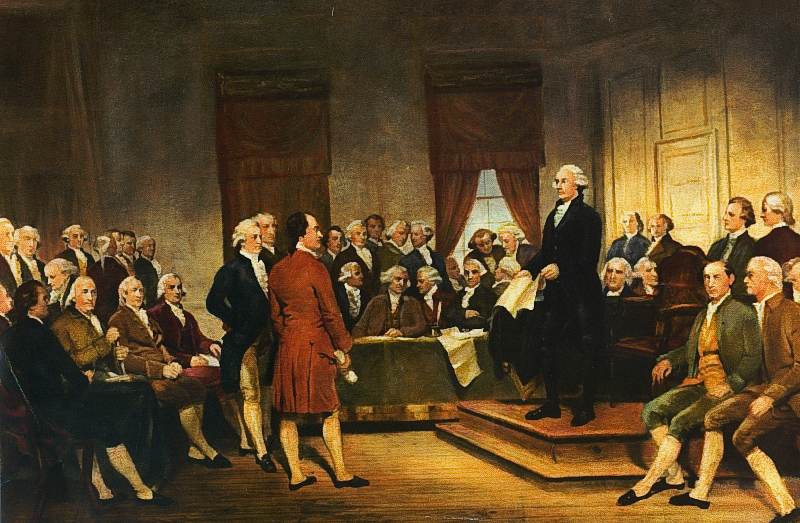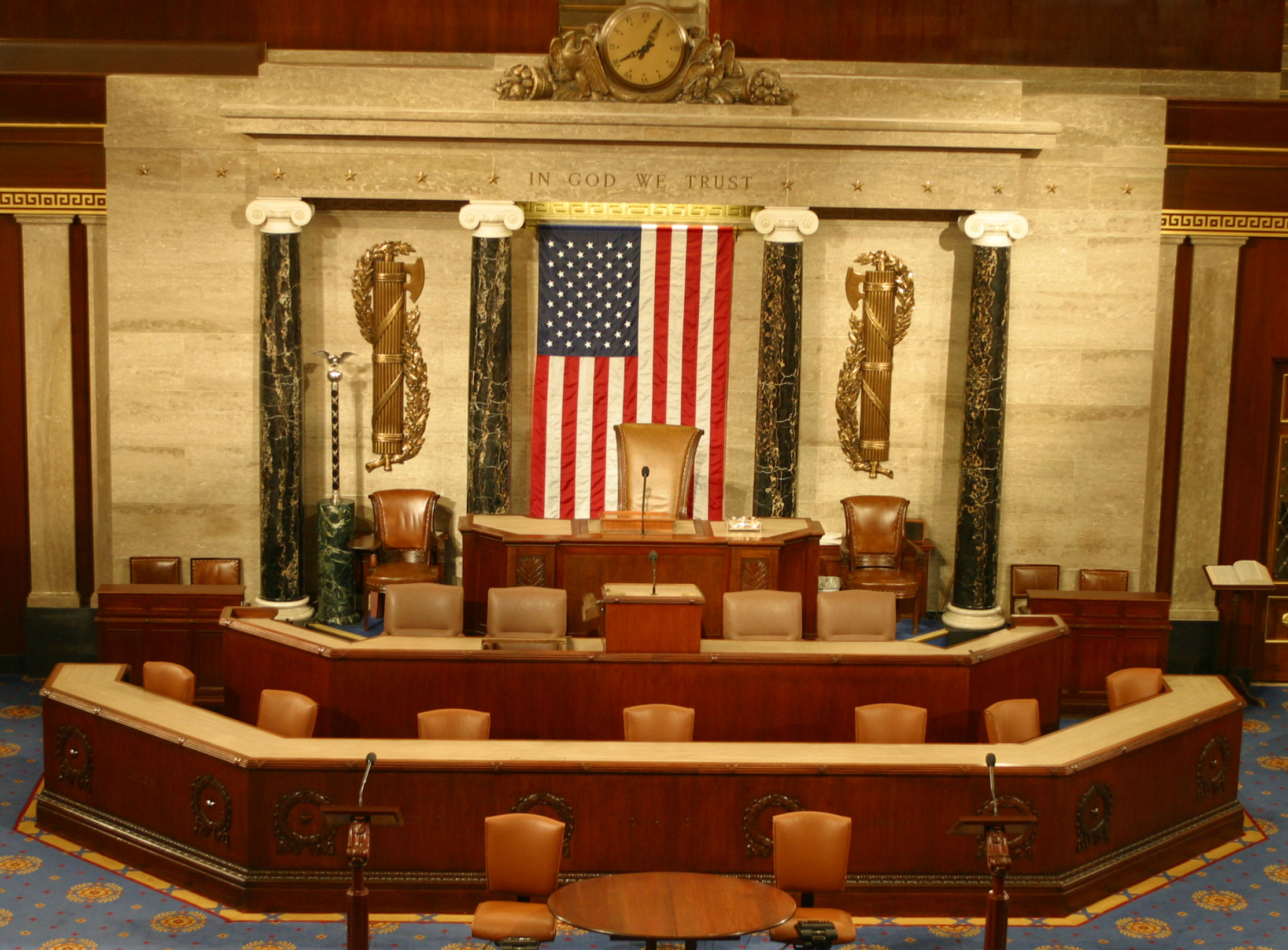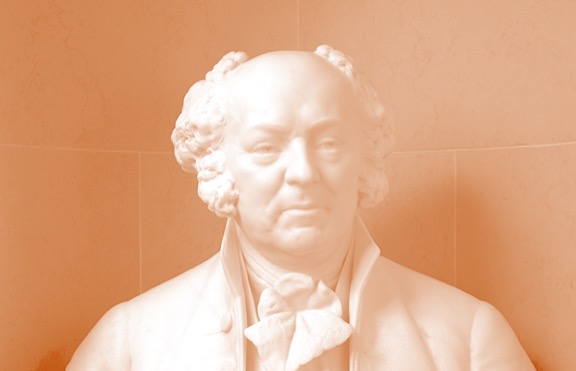Forgetting the Founders: The 2020 Democratic Field

A long line of suitors in the 2020 presidential election is forming, with each would-be-president fighting to interpret the Constitution to fit their political agenda. Bernie Sanders is at it again, attempting to read a universal right to healthcare into the Constitution, while Kamala Harris seeks to alter campaign finance laws “For the People.” No matter what the proposal, the candidates’ arguments are analogous: calls for changes which conveniently bypass consent of the governed.
Today’s Democratic candidates, with their smooth speeches and practiced demeanors, provide a sharp contrast to the “ungainly” and “awkward” man who presented a speech “devoid of all rhetorical imagery” 159 years past. In 1860, Abraham Lincoln delivered what has come to be known as the “Cooper Union Address” to a group of citizens from the Empire State. The speech captivated an entire nation.
Lincoln began his address by answering the claims of his longtime political adversary, Illinois Senator Stephen A. Douglas, with whom Lincoln was in disagreement over whose policies were more in line with “our fathers who framed the Government under which we live.”
Today, this seems like a curious topic for a presidential platform. A dispute over whose views are more in accord with the Founders will probably not occur during the 2020 Democratic primary. The focus thus far has been on transforming America, on “creating” a nation which respects all social identities. Unsurprisingly, many on the Left dismiss the Founders as rich white men whose opinions are irrelevant.
Lincoln would have disagreed. During his address at Cooper Union, he painstakingly traced the votes of thirty-nine Founders and seventy-six members of Congress to determine their views on slavery. He believed the Founders set forth the hope of human equality (most notably in the Declaration of Independence) though they were unable to make it a reality in their lifetimes. Lincoln’s purpose was to align his policies with the original Constitution. And he did this out of reverence for a principle that still binds us today.
The arguments and voting patterns of the Founders can be used to determine the meaning of the document. But it is not their authority which gave the Constitution its power. They openly submitted it to the people of the several states for ratification. It was the people’s choice to breathe life into it or leave it as an empty parchment. Only by earning the consent of the people was the Constitution elevated to the supreme law of the land and made the governing document for a nation of one people.
Such was the sovereign act of our forebears. But present day opinion and consent still matter. Unforeseen circumstances may make it prudent to alter the document. And indeed, the Constitution can be modified in one of two ways: two thirds of both Houses can pass an amendment or two-thirds of state legislatures can call for a convention of the states. Though differing in process, both these methods require consent and open deliberation by the people. They allow us to exercise our own sovereignty, more than 200 years later.
But many seek to change the Constitution today by simply reinterpreting it, rather than taking on the transparent and arduous task of altering it through the amendment process. This is illegitimate. The Constitution sets boundaries for national political decisions. When its meaning is constantly up for interpretation, rather than grounded in the understanding of those who passed it, those boundaries dissolve. As a result, the Constitution loses its power—and that power transfers to elites.
Reinterpreting the Constitution violates the principle of consent of the governed. It is an act of elitism. Only the people have the authority to revise our governing document. Changing its meaning is an attempt to circumvent their approval by pretending it has already been given. Politicians who take such an approach may profess to stand for all citizens, but in truth ignore the supreme will of the people codified in the Constitution. They place select modern opinions (theirs and those of their base) above the collective wisdom of current and past Americans.
For though the Founding generation ratified the Constitution, all subsequent citizens have lived under its protections and made the choice to alter it or leave it untouched. The Constitution in its current form is thus a culmination of the explicit and tacit consent of all previous generations as well as our own. We have perpetuated its supremacy and made it not only the Founder’s Constitution, but that of Robert Frost, Rosa Parks, and Holocaust survivor Judah Samet, whose father, upon being liberated from a concentration camp, cried with joy, “It’s the Americans.”
The American Mind presents a range of perspectives. Views are writers’ own and do not necessarily represent those of The Claremont Institute.
The American Mind is a publication of the Claremont Institute, a non-profit 501(c)(3) organization, dedicated to restoring the principles of the American Founding to their rightful, preeminent authority in our national life. Interested in supporting our work? Gifts to the Claremont Institute are tax-deductible.
Root, root, root for the electors. If they don't win it's a shame.
Part I: Unfettered reason cannot conserve anything.
Part II: Honor and self-constraint can stave off tyranny.






